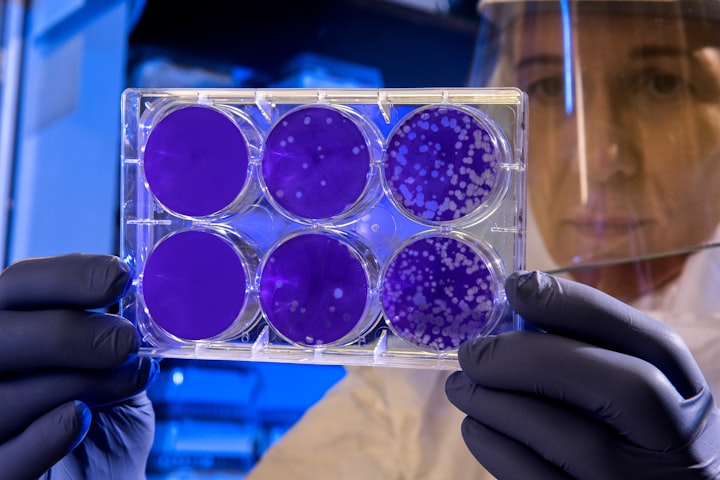Stem cell therapy
Have we found the Holy Grail?
“Man is an animal with primitive instinct of survival. Consequently, his ingenuity has developed first and his soul afterwards. The progress of science is far ahead of man’s ethical behavior.” This words belong to someone whose main occupation was to entertain and amuse. Believe me when I say that the author of this quote had a clear goal, to make us all more human.
He lived in troublesome times, the world was changing at a frantic pace, he envisioned the dark times ahead. He was there when the industrial revolution rattled the flimsy foundation of proletariat, he witnessed first-hand the horrors of totalitarianism. His art suffered heavily with the advent of new technology, a pioneer as he was in the early days of motion pictures could not be called an act from the not-so-distant-past.

His creativity made him be the tip of the spear when sound became available, making him one of the most fructiferous actor/movie directors of all times. His name was Charles Spencer Chaplin, best known simply as Charlie Chaplin. He was one of those ahead of its time. But even he questioned the true scope of ethics, there’s a thin line between the meaning of the word and what we as a society made of it.
According to the Merriam – Webster dictionary “The discipline dealing with what is good and bad and with moral duty and obligation.” is called “ethic.” We can round it up as a system of moral principles, is the guideline that make us distinguish from feral animals. However, it’s well proven that progress can change sides at will, making the right seem wrong, and the false seem true.

PANACEA
Holy grail at sight?
Can you imagine the cure to all diseases? What if our body is able to heal itself with a little help from science? Sounds good right? Well, scientists are working around the clock to finally grab the holy grail with both hands. Under this premise, the key to cure and overcome many illnesses could be right at hand thanks to Stem cells treatments. To put this topic in perspective, why don’t we define what a stem cell is?
Stem cells are the body’s raw material, cells from which other cells with specialized functions spawn.
In theory, science is working towards the ultimate cure. Right now, several sources of stem cells have been discovered. Embryonic stem cells, adult stem cells, perinatal stem cells and altered adult stem cells. Each one of them carries advantages and disadvantages, even ethics and morals are being compromised by them, it goes beyond the realm of medical science to touch the very core of what make us human after all.

BEYOND THE EMBRYO
When do human beings begin?
Is it at conception? When the heart starts to beat? When the embryo finally takes on a human form? An embryo is not something distinct from a human being, it is simply a human being at the earlies stage of its development. To successfully obtain embryonic stem cells, an egg should be fertilized with a man’s sperm in an in vitro fertilization clinic. The difference lies on the fact that those eggs were never implanted in a woman’s uterus, they “live and grow” inside of a petri dish in a pure Huxleyan fashion.

In one of his novels, prolific writer Aldoux Huxley envisioned a world where humans were manufactured on labs, different types of humans were meticulously decanted to perform a specific task. Alpha’s, Beta’s Gamma’s Epsilon’s had their place in society chosen in advance. This dystopian novel warns us about the dangers of letting science and politics wander freely.

Brave new world once more.
There’s no doubt that doctors have performed stem cell transplant (also known as Bone Marrow transplant), with promising results. They have also used a similar approach to help patients with blood-related diseases and even some form of cancer. Up to now, these transplants use adult stem cells or umbilical cord cells as treatment. However, the use of embryonic stem cells is even more delicate. Due to the fact that embryonic stem cells can trigger an adverse immune response in which the recipient body’s attacks the foreign cell as a threat, consequently, creating a counter effect.

It’s more than a personal choice.
Do we have the right to take a life for a life? Can an embryo be considered a life? The fact that every oak tree was once an acorn does not prove that every acorn is an oak tree. Under that premise, we can assume that not every embryo will develop into a full-grown, healthy human being. Sure, we don’t know that now, and never will. Ethical and moral questions are haunting me since I read an article on that subject, what if you can save the life of a child by taking a tray of 5 embryos? Is it morally correct? An infant can feel pain; can an embryo feel it too?
I don’t have the answers, and even if I can circle my way to a satisfactory conclusion, I wouldn’t dare to call it the right answer.

About the Creator
Giovanni Profeta
Swimming through life one stroke at a time.







Comments
There are no comments for this story
Be the first to respond and start the conversation.